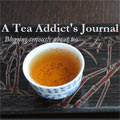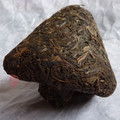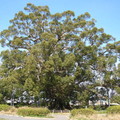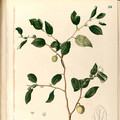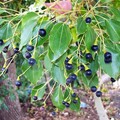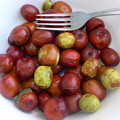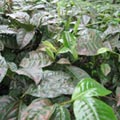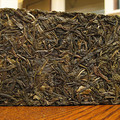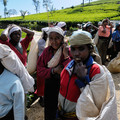Bitter, still honey sweet
 5.0 This review helped: 0 / 0
5.0 This review helped: 0 / 0
This is the most expensive cake from 2015 ChawangPu Collection and the only tea tagged as Gu Shu – wild tea trees. We were able to taste the same material 2 year ago, when Cha Wang was offering 2013 Spring Hekai moacha from the same location. I was admiring the size of leaves and pleasantly bitter body. So, how is this year’s tea standing?
Rinsed leaves smell deeply flowery and fruity.
The first cup is sweet after honey with pleasantly light bitterness. The tea immediately starts to heat up chest and the energy is rising up…
The second cup is already quite bitter with a nice honey flavour. The bitterness is outstanding, but not unpleasant, it is not disturbing. The aftertaste is pleasantly bitter-sweet and very very long. The bitterness in aftertaste is first woody, then it’s softening and finally there remains just honey sweet taste in your mouth. If you smell an empty cup after drinking, the nose is filled with lovely honey scent. The bitterness contains nutty flavour in later infusions.
I was checking other reviews on the net and almost everyone was repeating that this tea is very good to drink now, but not suitable for aging. No doubts the teas is very good now, I totally agree and I recommend it to taste.
Well, in regards to possible suitability to againg or not. It’s true that Hekai is not one of those famous locations, where you are more sure a tea will mature well. Nevertheless you can find a few single mountain teas from Hekai. I had a chance to taste 2007 Repave from White2Tea and I was not much keen on this tea (maocha from 2007 was pressed in 2014), yet I don’t want to judge Hekai by this one experience.
Hekai from Cha Wag is very likable tea. Tea trees are looking very nice, leaves are dark, beautiful, big and looking alive. It contains a lot of big and fair buds. Outstanding and promising bitterness … to buy or not to buy? An eternal question of puerh collectors ;-)
This tea is Gu Shu, so the price of $36 for 200g cake is perfect! Personally I will buy a few pieces to watch this tea.
Was this review helfule? Yes / No
 1 review
Added 05.10.2015 by Eternal Spring,
Tea status: [425] A
7092x
1 review
Added 05.10.2015 by Eternal Spring,
Tea status: [425] A
7092x

 Shops
Shops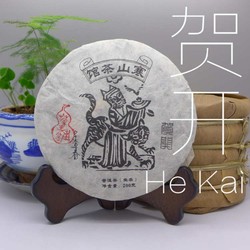









 Share on Facebook
Share on Facebook











